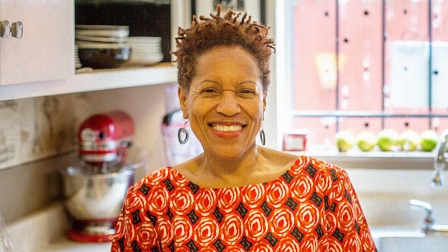The Food-Sharing Economy Is Delicious And Illegal–Will It Survive?
Renee McGhee, a 59-year-old grandmother of nine, was at home recuperating from a bicycle accident when she opened her neighborhood newsletter and saw an advertisement for home-cooked meals. A few clicks later, she learned that the neighbor who posted it had joined Josephine, an online marketplace that helps home cooks coordinate small takeout-food businesses. McGhee’s last job as the manager of a cake bakery had required heavy lifting. After breaking bones in both hands, she’d crossed anything like that job off of her list of potential employment options, but cooking for Josephine sounded like a way to pay her rent once the disability payments stopped—work she could do at home while she babysat her grandkids. She filled out the online interest form.
A few days later, two Josephine employees visited her apartment—part of a “four-plex” in the Loris Neighborhood of Berkeley, California—and she made them pulled pork sandwiches on ciabatta rolls. They inspected her kitchen using a checklist: Did she keep all food six inches above the ground? Was her refrigerator set at the correct temperature? Did she have a California Food Handler Card? Josephine, she learned, provided training, advertising, and insurance for up to $1 million in liability. Everything seemed too good to be true. “I said, let’s just cut to the chase,” she remembers, “What is it going to cost me to be able to do this?” Josephine would take 10% of her sales, they said. McGhee couldn’t believe it: “I almost fell over. I was like, I’m in.”
Every Thursday for the next nine months, she cooked lasagna, pulled pork, lemon chicken, and a variety of desserts for Josephine while she babysat her 7-year-old grandson. Most of her customers were neighbors. “They would just pass before,” she says, “and now they were coming into my home and having conversations.” One 79-year-old customer walked from six blocks away to pick up her meals. Another woman drove from Emeryville, usually arriving 30 minutes before the serving window, at 4:45, so she could “beat the traffic.” A friendly couple regularly showed up with a bottle of wine to share. “It was like family,” McGhee says.
Josephine had signed up about 75 cooks in the San Francisco Bay Area and, like Renee, many of those cooks’ customers had warm feelings toward the startup. “When I opened the door, it really did feel cozy, like I was entering into a warm home, full of laughter and good music,” one user wrote on Yelp. The Atlantic called Josephine meals “utterly reliable generators of smiles and warm feelings” and Business Insider declared the company one of the “50 coolest new businesses in America.”

Then, on a Monday morning in April, everything changed. For McGhee, the news came with a knock on her door.
Two men on her stoop explained that they were from the health department. Making and selling food from her home, they said, was illegal and punishable by a fine.
McGhee closed the door and sat down, cease-and-desist letter in hand. “My first thought was, ‘I committed a crime,’” she says. “It felt icky. It felt like the wind had been knocked out of me.”
She wasn’t the only one who felt this way. That morning, Josephine’s founder, Charley Wang, had woken up to his ringing phone. Traci, one of Josephine’s most successful cooks, was calling, panicked, from a coffee shop. She’d been warned by a visiting friend that three health department officials were waiting in her living room. “I’ll be there,” Wang told her. “Don’t do anything yet. Just stall.”
By the time he returned to the office—the three officials had left Traci’s house before he’d arrived—Lisette Silva, who both cooked Josephine meals and worked as the startup’s creative sourcing and product development leader, had also received a cease-and-desist order. In the next 48 hours, Josephine heard from about a dozen cooks who received similar letters.
Wang and Josephine’s other 10 employees spent the week, as Wang puts it, “learning crisis management 101.” They planned a “resilience celebration” for their cooks. Silva cooked the Ecuadorian Seco de Pollo that she had been planning to sell for her next Josephine meal and shared it with her disheartened coworkers. And then, on Friday, Josephine received two cease-and-desist letters of its own, one from the City of Berkeley and one from Alameda County, for “facilitation” and “aiding and abetting.”
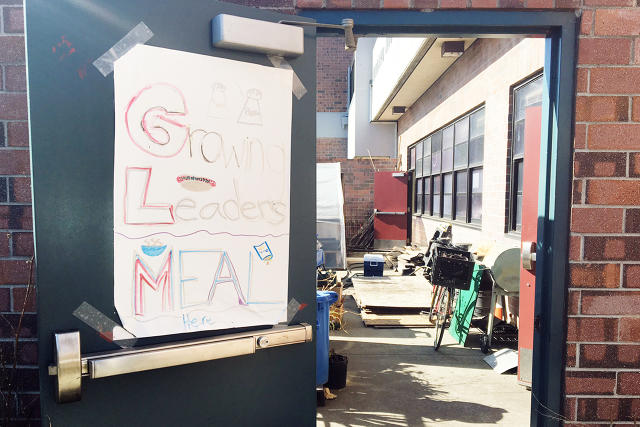
Most states—with some exceptions for baked goods, granola, and other “non-potentially hazardous” products—require that food sold to the public be cooked in a commercial kitchen. In California, the retail food code specifically lists home kitchens as a place where commercial food facilities cannot operate. But that has not stopped food startups like Josephine from bringing food into the sharing economy.
Feastly and EatWith facilitate pop-up dinners in people’s homes. Mytable, MealSurfers, and Umi Kitchen deliver meals from home chefs’ kitchens. Homemade, a similar concept, acts like a Shopify for food, providing software to enable anyone to sell their empanadas or jerk chicken dish from their apartment. Even Etsy has a fairly extensive homemade food inventory.
As startups launch in heavily regulated industries such as food, health, transportation, and housing, clashes with the law have become as common in Silicon Valley as office ping-pong tables. The most common approach to these regulatory battles—successfully embraced by lodging site Airbnb, ride-hailing app Uber, fantasy football site FanDuel, and DNA testing and analysis company 23andMe— is to ignore the troublesome law as long as possible. “For a long time, the advice was, just keep your head down, build the kind of network you need to be viable, and then once you have viability, nobody is going to be able to shut you down,” says Julie Samuels, the executive director of Tech:NYC, a recently founded industry advocacy organization with more than 300 member companies. “If Uber had gone to the regulators first, the entrenched interests would have crushed them in seconds.”
What might have been easy for regulators to squash in a startup is another matter after the offending business becomes one of the most valuable private companies in the world. When New York City Mayor Bill de Blasio threatened to limit Uber’s expansion last summer, the former startup, now months away from being declared a $62.5 billion company, orchestrated a campaign, complete with television ads, lobbyists, and even a “De Blasio’s Uber” feature in its app that showed users a dystopian world in which they must wait 25 minutes for a ride. The mayor backed down. Similarly, last fall, when Airbnb faced a San Francisco ballot measure that would have restricted short-term rentals, the company—now the largest hospitality business in the world—spent $8 million to successfully lobby against it. That’s about $3 million more than Google spent lobbying the federal government that quarter. The Scorched Earth Approach, if you will. Sometimes it works better than others: The FDA forced 23AndMe to shut down its genetic medical testing service for two years before it won approval to resume some health tests.
Innovation outpaces regulation, these startups reason. If we want to progress as a society, what choice do we have but to ignore archaic regulations?
“Sharing is great,” fires back critics like Sarah Desmond, the executive director of Housing Conservation Coordinators, “but not every law is ‘outdated’ just because it gets between a startup’s CEO and his payday.” These critics warn of a “a two-tier system of justice” in which startups like Airbnb and Uber “create their own regime of privilege for themselves and power over others.”
Josephine intended to try working with government. “It doesn’t even seem like they’re trying,” Josephine’s COO, Matt Jorgensen, says about the typical startup attitude toward regulation. And so, against the advice of potential investors and other entrepreneurs, Josephine decided to engage with politics.
In October, six months before the wave of cease-and-desist letters, the City of Berkeley had first inquired about Josephine’s illegal operation. After meeting with health officials from the city and county, Josephine’s leaders believed the startup could find a compromise that would allow it to continue operations. In the process, it sponsored a bill which it hoped would legalize sales of home cooking. “We thought,” Jorgensen remembers, “this is armor, because it’s proving we can do the right thing.”

If you want to sell food in California, your kitchen needs to have a sink—at least 18 by 18 inches in length and width and 12 inches deep—exclusively for washing and preparing food. It needs another sink with at least three compartments (“with two integral metal drain boards”) for washing, rinsing, and sanitizing dishes. Countertops must be “nonabsorbent,” typically stainless steel, and the lightbulbs above where you prepare food should be “shielded, coated, or otherwise shatter-resistant.” Your can opener must have a “piercing part” that can be removed and cleaned. “It’s about a $50,000 effort,” says Peter Ruddock, the coordinator of the California Food Policy Council. “It would be a significant investment to turn your kitchen into something that you wouldn’t want [in your home].”
Current laws criminalize both the Boston transplant who sells hundreds of lobster rolls each day out of his Brooklyn apartment and the Wisconsin farmers who want to sell baked goods they make in their kitchens. Anyone without the means or desire to rent a commercial kitchen (typically between $20 and $40 per hour in San Francisco) can only operate “underground.” This, says Janelle Orsi, the executive director of the Sustainable Economies Law Center (SELC), a nonprofit organization that advocates for grassroots economic empowerment, “creates an inevitability that all food businesses will have this growth imperative, or that they [can’t] compete unless they are large.”
As of August 2013, all but nine states had some version of a “cottage food law” that allows some home-cooked food to be sold to the public. Wyoming, which has one of the most permissive policies, permits sales of almost all home-cooked food, with the exception of poultry. But in most states, including California, cottage food laws apply only to specific “non-potentially hazardous” foods such as baked goods, dried fruits, and popcorn. Wisconsin does not even allow sales of homemade baked goods.
Proponents of expanding these laws to permit more commercial home cooking argue that scale matters: While a dishwasher in a restaurant kitchen might not have time to properly wash every dish with soap and water, thus necessitating an extra sink bin for bleach water, a home cook who is selling 10 meals per night isn’t in the same time crunch. From a safety perspective, these proponents see the risk as being similar to having friends over for dinner, hosting a potluck, or pitching in money to cover your share of a potluck if you don’t have time to cook. “If the first three are clearly legal, it’s not clear why the last one should not be, if your concern is food safety,” says Jacob Gersen, the founder and director of Harvard’s Food Law Center, who also advises home-cooking startup Homemade. “It would expose you to just as much food safety risk.”
According to the CDC, about 48 million Americans get sick, 128,000 are hospitalized, and 3,000 die of food-borne diseases every year. The question is not so much whether food illness is a serious issue, but whether our current system of restricting public food preparation to commercial kitchens is any more effective at preventing it than would be legal guidelines for operating a cooking business at home. Typically, health departments audit restaurant health safety once or twice a year. “If they know [a health inspector] is coming, which they often do, they’re on their best behavior,” Ruddock argues. “If they’re going to get sloppy or mean, there are 364 days of the year.” By contrast, in a home customers can see the kitchen and the person who has prepared their food, which creates some personal accountability. Online reputation systems can augment the accountability of direct sales, because cooks build reputations and customers easily inform each other when they see something questionable.
These home-cooking businesses exist whether or not they are legal. Homemade, for instance, finds many of its cooks because they are already advertising their home-cooked food using Instagram. Dispersed and offline, these tiny businesses are not easy for regulators to locate and shut down. But like Airbnb and Etsy, startups make an existing piece of commerce both easier and more visible—which from a food safety perspective, Gersen argues, could be a good thing. “The loophole model, where regulators look away for a while and allow people to do it in the worst way,” he says, “does not seem like a great state of affairs.”
“They’re bolt cutters,” Wang tells me. We’re sitting at what used to be his dining table, in a shared workspace and gallery for socially minded companies and artists in Oakland, and Wang has noticed me noticing the long image that stretches down the inside of his left forearm. “I got this tattoo after [raising] the seed round,” he explains. Wang pulls up the sleeve of his black T-shirt to show me another tattoo, a word written in Chinese calligraphy that looks like it has been painted onto him with a thick brush. “It means subversive.”

Wang wears his hair in a high ponytail and sometimes walks around the office in bare feet. His employees, who often hug each other goodbye, drop the phrase “justice” as frequently as most other startups use the word “disruption.” Bolt cutters or not, Wang’s brand of subversive has an immediately perceivable softness to it. “When I think of Charley, it makes me smile,” explains Josephine Miller, the 57-year-old woman for whom Josephine, the company, is named.
Josephine’s son, Josh, introduced both Wang and his cofounder Tal Safran to his mother when they were new to Los Angeles. She invited them to her Santa Monica home. “I was just being a mama, opening the door, and saying, you’re always welcome,” she says of the dinners they frequently shared together. Wang at the time was launching a branch of the trade school General Assembly and Tal was working as an engineering consultant at SpaceX . Aside from their meals at Josephine’s house, they lived on convenient food options that were only getting more convenient. A mess of tech companies—Uber, Postmates, DoorDash—had focused on bringing food from restaurants to doorsteps. Startups Sprig, Maple, and Munchery, meanwhile, had cut out the restaurant completely, routing food directly from their kitchens to busy (or lazy) people at the push of a button. “What would happen to home cooking?” they wondered, aloud, around Josephine’s table. “Would it be crowded out by ultra-convenient, ultra-commoditized food?”
They moved to Oakland to answer the question themselves. With proximity to Silicon Valley’s sharing economy and Berkeley’s food movement, they started to experiment using their own homemade food (“I called my mom a lot and asked for recipes,” Wang says). They tested combinations of sit-in dinners, deliveries, pickups, and guest chefs.
At the end of the process, they concluded that home cooking was about relationships: “How many restaurants say that they have homemade or home-style food?” Wang says. “It’s still restaurant food.” Offering meals for pickup seemed like the best way to both preserve the personal connection that made homemade food homemade food while also making cooking from home a repeatable, scalable business and keeping the price of meals down (typically meals cost about $12). COO Jorgensen—at 25, already a former ski patroller, Bain consultant, and entrepreneur (he cofounded a company that makes “slim-cut and beautifully styled overalls”)—joined soon after, excited by “the evolution of the economy, and what the peer economy could do as part of that.” Not only would Josephine be a distributed economic opportunity, but, its early employees hoped, it could change the way people eat.
To recruit cooks, Josephine brought meals and baked goods to PTA meetings, made inquiries on contractor websites, and posted to Craigslist. The resulting batch of chefs were disproportionately women, mothers, immigrants, and people of color. By this point, Wang looked at Josephine as a social enterprise. “A lot of people think that you can have too many values— they’ll keep you from making the hard decisions, or keep you from succeeding in what is a cold, hard business world,” he says. One investor asked Josephine to spend less time with cooks. “He told us we didn’t have killer instinct,” Wang says, “and I was like, I don’t want to be a killer.”
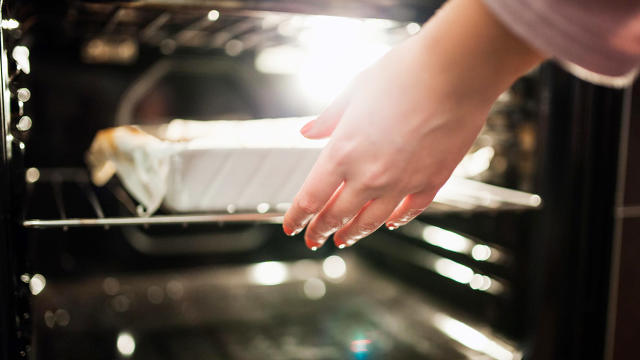
County and city health officials were not amused by Josephine’s efforts to show some respect to the regulations it was violating while continuing to facilitate sales of home cooking.
They had first met with Josephine in November. In the meeting, the city officials informed Josephine that its operations were illegal and asked for a list of its cooks. Josephine declined to provide its cooks’ information and made some changes to its website: It required people to become members of Josephine before buying a meal and clearly indicated that the food had been cooked in a home kitchen. “Josephine is working with local health departments in Berkeley and Alameda County as well as California state legislators to determine how our model fits into the broader regulatory landscape,” the Josephine website now stated. “While this collaboration develops and we explore permitting options, we are asking our cooks to use commercial kitchens for meals.”
That’s not quite how health regulators saw the relationship. On December 18, Kathleen Pacheco, Alameda Deputy County Counsel, sent a letter to Josephine’s lawyer. “This language implies that the county and city are ‘in collaboration with’ Josephine and are not requiring permits or inspections at this time,” it said. “While the Department of Environmental Health is willing to work with Josephine’s cooks to apply for permits, as has been explained to you and your clients, they do not have the authority and in no way have granted any type of exception…to complying with legal requirements.” Josephine, a for-profit company, would not be exempted just because it was now a “private club.” She reiterated the request for names and addresses of Josephine’s cooks and included a “notice to Josephine cooks” that she requested the company send to its users. The City of Berkeley sent a similar letter the same day.
Josephine had attempted to rent commercial kitchen space on behalf of its cooks. Even when the startup paid the rental fee, almost no cooks showed up, and even if they had, it would still have been illegal for them to serve the food from home. Moving to a commercial kitchen would be the end of Josephine’s mission of bringing home cooking into the future.
Health regulators at the local level, meanwhile, had no authority to compromise with Josephine and no legal discretion about whether to enforce the law. “As city staff, we don’t write the laws or create the laws,” says Matthai Chakko, a spokesperson for the city of Berkeley, “and if the laws changed, we would implement them accordingly.”
So Jorgensen looked into changing the law.
“You mean we just write it ourselves?” he asked a lawyer at the SELC’s legal advice clinic.
He was astounded to learn that, yes, most bills begin with a draft written by an interested party. He opened a Word document on his computer, pasted in the existing language of the food code, and started highlighting what he’d like to change.
In February, two months before Renee McGhee and other Josephine cooks received cease-and-desist letters in April, the startup sponsored a bill in the state legislature that proposed removing commercial home kitchens from the list of facilities beholden to all of the requirements in the California Retail Code.
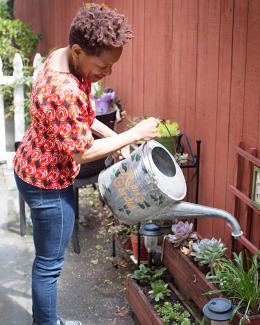
What Josephine didn’t realize then was that, possibly at that very moment, officials from the California Department of Public Health were covertly ordering meals from Josephine cooks in order to prove they were violating the existing law. Eventually, county officials would say their action had been prompted by a customer report of illness (Don Atkinson-Adams, the acting chief at the department, declined to provide documentation of the report). A cease-and-desist letter sent to one of Josephine’s cooks would cite a customer report of nausea, vomiting, and diarrhea, but that cook would not yet have signed up to serve Josephine meals on the date the report was made. The cook who did serve a meal that meets the description in the cease-and-desist letter says she has not heard anything about illness from her customers, and on the Josephine site, two of them left five-out-of-five-star reviews of the meal.
Jorgensen and Wang would learn all of this bad news a few months later, after they’d been effectively shut down in the Bay Area. But for now, they were heartened by their first brush with lawmaking. “This was totally, totally new to us, and we felt like we were muddling our way into it,” Jorgensen says. “But it was exciting: It was like, wow, we can just show up, and have a voice.”
The bill Josephine had sponsored in February popped up on the bill-tracking software of Justin Malan, the executive director of the California Conference of Directors of Environmental Health (CCDEH), on the same day that Representative Cheryl Brown, who had been attracted to the bill’s potential economic impact, submitted it. Broad and simple, it would have permitted anyone to sell pretty much anything cooked at home.
The CCDEH’s members are Environmental Health Directors from 62 state jurisdictions in California. Malan imagined improperly handled raw sushi. He thought about how easy it would be for a cook to come home from the grocery store with raw chicken, leave it on the counter for hours while distracted by something else, and then re-refrigerate it. Any restaurant, he feared, could use a law like this one to skirt health codes.
“It had none of these food safety requirements that we require of even the smallest restaurants, even the cappuccino cart,” Malan says. “What we don’t want to see is a small restaurant that has to have all of the equipment and pay the fees and then somebody a block down in a residential area, serving almost as many people with none of those public health protections.”
Malan filed a letter of opposition immediately.
Representative Brown pulled the bill shortly later, but the CCDEH had agreed to work on a version of a new law that its members might, if not quite support, at least not oppose. Malan was optimistic that a new bill was achievable. “This isn’t world peace,” he told the Josephine team.
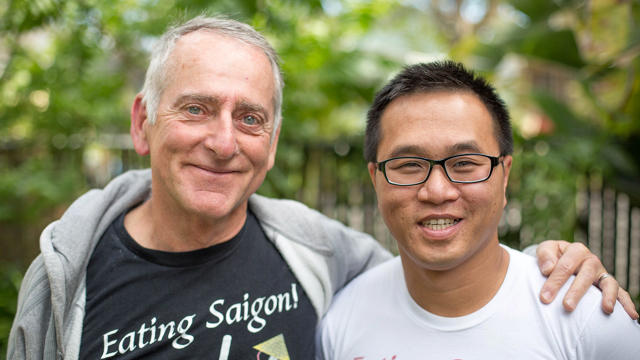
Any concern I may have had for my health dissipates with the heavenly smell of slow roasted beef as I follow a sign that advertises “Eating Vietnam!” to the second floor an Emeryville apartment.
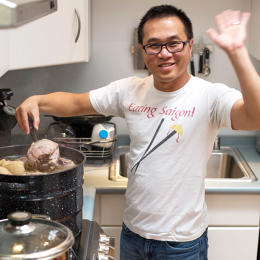
Hai, a smiling Vietnamese man wearing a Josephine apron, is cooking Banh Mi Hap, a Saigon-Style steamed bread wrap. I’m with Simone Stolzoff, Josephine’s head of communications and business development (the startup is still small), picking up two of the 28 orders he has prepared for the evening. Joe, Hai’s partner, greets us from a laptop set up on a card table. “Miss Debbie!” he exclaims a beat later. A woman with short hair and a pink pullover has appeared behind us. She pauses, as though for a photo, with a peace sign.
In Saigon, Hai’s family runs a restaurant. In California, he worked at a grocery store before beginning his home-cooking business. His meals look like a more authentic version of takeout (but “way better than any Vietnamese food I’ve had in a restaurant,” according to one testimonial on his website). He hands us two cartons each. One holds beef over slices of baguette. The other is an assortment of greens. Hai opens the latter with gloved hands and lifts the leaves to show us tiny tubs of chilies and fish sauce nestled beneath them. “Careful with fresh chili,” he tells us. “Is spicy.”
After Hai packs our meals neatly in a paper bag, we carry them down the block to a dry patch of grass wedged between sidewalks and sit down in the dirt. We pour the tiny tubs of sauces over the beef and bread, top them with sliced fresh cucumbers, and use the larger green leaves like tortilla shells. The beef lives up to the savory smell in Hai’s hallway. Neither of us is confident that our lettuce burrito method is the proper way to eat the dish, but the joggers and cars that pass us don’t seem to mind.

After enjoying the next two days in perfect health, I meet Wang back at the Josephine offices, where he has spent his 26th birthday pinpointing locations outside of California where Josephine might launch next. Seattle, Portland, and Denver all look promising. The company had already started accepting cook applications globally around the time that Berkeley and Alameda delivered the cease-and-desist letters, and hundreds of cooks have submitted interest forms.
The night before, Wang and Jorgensen had gathered a group of activists, nonprofits, and leaders of economic development programs to consider the options: Josephine could petition for a county-level pilot, but it would still require state-level approval. It could attempt to have California agree to a stay of action that would effectively de-prioritize enforcement for a period, but since enforcement had already occurred, that seemed like a moot point.
Josephine had no shortage of support. Even Wyoming state representative Tyler Lindholm, who had co-sponsored that state’s food freedom law, had called to weigh in with advice. (“I know it probably seems weird, giving my home phone number, but here in Wyoming,” he noted in a message on Jorgensen’s voicemail, “It gets a little more personal.)” Even so, the startup’s future was uncertain.
Reaching a compromise with the CCDEH would appease only one stakeholder, environmental health officials. In addition to violating current health regulations, Josephine cooks use residential property for commercial purposes. The original cottage food law in California deals with potential traffic issues by capping such businesses at $50k of annual revenue, and at least a couple of Josephine’s cooks have sold more than that limit. The Sustainable Economies Law Center, meanwhile, believes the law should include some provision to prevent for-profit companies from acting as middlemen between cooks and consumers (it is unclear whether the center would characterize Josephine this way).
“How can we decriminalize neighborhood-based sales of homemade meals in a way that disrupts corporate control of the food system,” wrote Christina Oatfield, the nonprofit’s policy director, in a blog post, “rather than simply adds a few tech giants to the map of corporate control of the food system?”
Even without opposition and with all state representatives on board, an updated bill has almost no chance of passing this year, as the California State Legislature’s last session of the year begins next month.
And barring an urgency provision, if a bill passed next year, it wouldn’t go into effect until January 1, 2018.
Meanwhile, Josephine, which raised money last fall, has enough money in the bank to keep running the business for about 10 months.
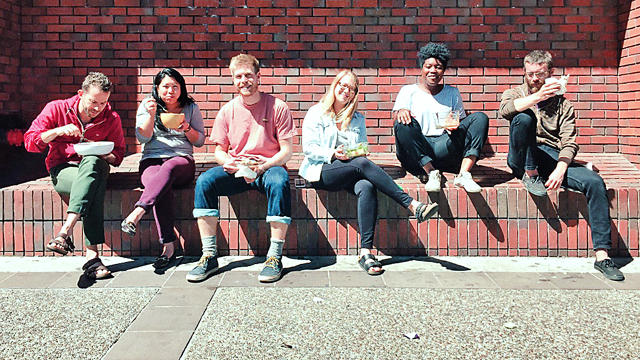
On June 7, the day before Josephine met with stakeholders to consider its options, the San Francisco Board of Supervisors unanimously approved a law that would fine Airbnb for each one of its rental listings that did not register as a rental unit with the city (the company is now suing San Francisco). The month before, Uber and Lyft left Austin after spending more than $8 million on a failed campaign for a law that would have exempted them from a requirement to fingerprint drivers during their background checks. Later in June, the New York State legislature would pass a law that could, if signed by the governor, set fines of up to $7,500 for posting an illegal rental on the Airbnb website.
The Scorched Earth Approach had taken some hits—though none so fatal as they would have been when these startups were nascent. Shortly after Airbnb lost its campaign in New York, the New York Times reported that it was in talks to raise another round of funding at a $30 billion valuation, which would make it the second-most valuable private company based in the United States, behind Uber.
And if not Scorched Earth, then how should startups and government work together? “Nobody has figured that out,” Samuels says. “There is no answer. Regulators are grappling with this. It comes up at every conference, every panel discussion.”
Samuels, who says that the Scorched Earth Approach “is no longer feasible for a vast majority of startups,” believes that sunset provisions, which require that legislative bodies actively renew laws, could in theory help ease the clashing of tech and government by forcing legislatures to address changes in the world. Bradley Tusk, the political consultant who helped orchestrate Uber’s campaign against De Blasio, recently proposed “innovation lanes,” in which governors would grant a handful of dubiously legal startups yearly permits to operate under trial regulations. “The fault, I think, is on both sides,” he said while announcing the idea. “On the tech side, I think sometimes we’re arrogant. We always choose to beg for forgiveness rather than ask for permission and when we beg for forgiveness, we’re not very nice about it. On the government side, they’re doing the bidding of entrenched interests and campaign donors.” Restaurants theoretically might oppose competition from food startups, but the current political opposition is from health regulators, who would see experimentation as risking people’s lives.
Nick Grossman, a general manager at venture capital firm Union Square Ventures, sees Silicon Valley’s current legal struggles as a signal that the way we regulate should change. Currently, he says we emphasize permission. You need permits to run a food business and a license to drive a car. But because granting permission is resource intensive—think of the line at the DMV—it might be easier to think in terms of accountability when it comes to regulating small businesses that sprout up on platforms like Airbnb and Josephine. In a white paper published this April, Grossman argues for “alternative compliance mechanism” in which startups could monitor equity, access, performance, and safety of the operators who use their websites and allow the government to audit that data in exchange for reprieve from traditional regulations.
It has become trendy for government officials to espouse their concern for innovation. Cities have, for instance, sprouted “innovation officers” and launched startup incubators. “Governments are by their nature slow moving,” D.C. Mayor Muriel Bowser recently explained on an episode of Andreessen Horowtiz’s podcast. “I think what you’re going to find is that most elected officials want to have the best services that are available that are affordable and safe for their residents. The more they know about your business and your service and what it does to make your jurisdiction the best, you’re going to have a lot of support.” On another episode, Congressman Greg Walden said that, “We can’t afford to lose that innovation, that incredible capacity to improve human life, because we’ve got some silly regulation out there.”
Of course, there’s another option, which is to simply accept that government and change are supposed to clash. “It’s too difficult not to be subjective on that,” Malan says when I ask him what he thinks of some sort of “innovation lane” solution. “Taxes, gay rights: Whatever your issue is, if you feel the system is moving too slowly, you will revert to something outside of the system.”
Food trucks and farmers markets have endured long legal battles in order to operate legally. Maybe innovation is supposed to move forward, not like a sailboat on a gusty day, but like a bowling ball clanking back and forth between the gutter bumpers of an alley. Not efficiently, but in a way that covers most ground, with plenty of time to think before the pins fall. “This is all a negotiation,” Malan says. “Some people bluff. Some people lead strong and capitulate. Other people collaborate right from the beginning. To some extent, it’s a strategy thing. If it works, great. If it doesn’t, it doesn’t mean there’s anything wrong with the system.”
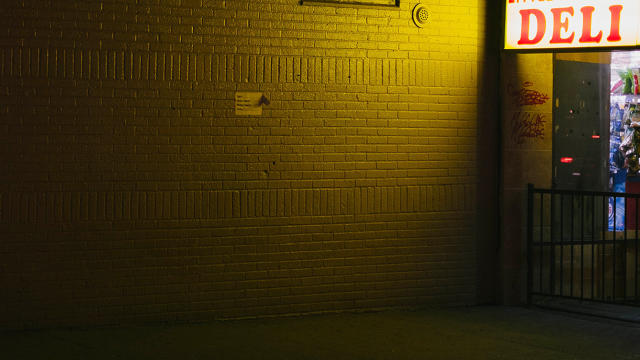
Jorgensen and I meet for at a New York City deli a couple of weeks later. It doesn’t look at all like a restaurant, lacking not only chairs and tables, but also a letter grade from the health department. Inside, there’s a refrigerated buffet bar filled with vegetarian Indian food. “Two,” the man behind the counter tells us, holding up a small Styrofoam bowl in his left hand to indicate it comes with two entrée items, or “three,” as he holds up a bigger bowl in his right hand. The vats are labeled with numbers. I choose number 1, a spinach dish, and 5, yellow spiced vegetables for my small bowl. Matt chooses 2, 5, and 6, chickpeas, daahl, and the yellow vegetables for his large bowl. Each bowl takes a turn in the microwave above the counter. Together, they cost $10.
The restaurant has been operating for more than a decade. How much longer, I wonder, could Josephine have flown under the radar if it had tried harder to be ignored?
Since Wang’s birthday, an Oakland economic development group has committed to working on a white paper with Josephine to demonstrate the economic impact of home cooking businesses. The CCDEH has held its first statewide committee meeting on home food policy, and Josephine received more than 250 applications in June alone from potential cooks globally.
After Uber and Lyft left Austin, a rush of ride-sharing apps filled the space they left. And the odds are good that, if not Josephine, some startup will create a successful online marketplace for homemade food. Josephine plans to target its national expansion in Seattle and Portland, but it doesn’t plan to take quite as proactive of an approach when it comes to working with local government agencies. Instead, it’s hoping that California’s state legislature will set a precedent.
“I still think that there’s a more inclusive way we can do this,” Jorgensen says as he scoops the last of his spiced Indian food from its Styrofoam bowl. “If we survive.”
Fast Company , Read Full Story
(37)

